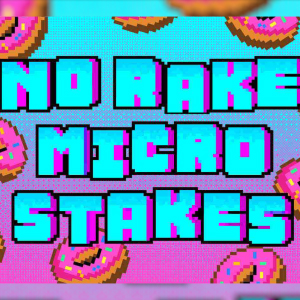What Is a Slow Roll in Poker?
1 hour ago

24 Nov
Poker is a game that is highly dependent on dynamics between players — which means it’s a game that’s also about respect, and therefore, table etiquette.
One of the most frowned upon acts of poker etiquette is a slow roll, which is a move that frustrates opponents and spoils the flow of a game. Despite it not being technically against the rules, it’s widely viewed as disrespectful.
Understanding what qualifies as a slow roll and why it matters helps players maintain integrity at both live tables and online rooms.
What Is a Slow Roll in Poker?
A slow roll occurs when a player with a winning hand deliberately stalls before showing it. The delay might last only a few seconds, but in poker, those seconds can feel like an eternity to the opponent waiting to see if they’ve won or lost. The defining feature is intent—when a player knows they’re ahead but pretends to be uncertain for dramatic effect.
This behavior stands apart from natural hesitation. Sometimes players need a moment to process their hand or the action on the board. The line is crossed when the pause serves no purpose other than to taunt or irritate. Slow rolling may earn short-term attention but usually damages long-term respect.
Software used by online poker platforms automates showdowns and speeds up decision timing. Still, awareness of etiquette helps maintain a positive environment no matter where you play.
The Psychology Behind Slow Rolling
The frustration caused by slow rolling runs deeper than a simple delay. Poker thrives on emotional balance, and players invest focus, patience, and composure into every hand. When someone slow rolls, that sense of mutual respect disappears, replaced by irritation and embarrassment for the player left hanging. It’s a subtle power move—one that uses suspense to provoke a reaction.
Most players interpret it as mockery because the intent feels personal. The person waiting believes the opponent already knows they’ve won but chooses to drag out the reveal for effect. In professional settings, such behavior breaks the rhythm of play and undermines sportsmanship. Even when it’s accidental, the gesture can unsettle a table.
Emotional control separates skilled players from reckless ones. Recognizing that etiquette influences atmosphere as much as chips or strategy helps maintain steady focus. A player who keeps the game respectful often finds that composure pays off when stakes rise—a fundamental knowledge to have when playing poker for real money.
Examples of Slow Rolling Situations
Slow rolls appear in many forms, but the pattern is usually clear once you’ve seen it happen. Here are some of the most common scenarios where this breach of etiquette takes place:
- Delaying a call with the best hand. A player holding the nuts hesitates before calling an all-in, pretending to weigh options that don’t exist.
- Feigning a fold before showing. Someone lifts their cards as if to muck them, then flips over a winning hand with a grin.
- Taking too long at showdown. When betting ends and both players are face up, one delays revealing a clear winner, letting the opponent sweat unnecessarily.
- Drawing out victory online. Some players take advantage of time banks in virtual games to stall before automatically showing their cards.
- Overacting for effect. Exaggerated sighs, gestures, or comments suggesting doubt when the player knows they’re strong.
Understanding what triggers them helps players recognize the difference between normal pacing and deliberate disrespect.
Why Is Slow Rolling Frowned Upon?
Poker etiquette relies on mutual respect, especially when large pots or final hands are involved. A slow roll interrupts that unspoken agreement. It drags out tension in a way that feels mocking to the opponent and uncomfortable for everyone else at the table.
Professional players and dealers often describe it as one of the most disrespectful moves possible. It wastes time, breaks the pace of play, and shifts focus from competition to provocation. Repeated slow rolls can even draw warnings or penalties in official tournaments.
In casual games, it damages trust between friends and regulars. The social side of poker depends on keeping the game fair and enjoyable. Players remember when someone slow rolls them, and those memories shape future table dynamics far more than any single pot.
The Difference Between Thinking and Slow Rolling
Not every delay means bad manners. Some hands require real thought, especially when pot odds, stack depth, or range balancing come into play. The difference lies in motivation. A genuine pause comes from analysis; a slow roll stems from theatrics.
- Decision pressure. When facing a difficult bet, players often need time to calculate whether a call or fold makes sense.
- Information gathering. In live settings, a player might observe body language or timing before acting. That’s part of legitimate gameplay.
- Technical complexity. Multiway pots or deep stacks create layers of strategy that take extra time to evaluate.
- Showdown clarity. Sometimes players misunderstand the board or their own hand and pause to verify results—confusion, not disrespect.
- Intentional delay. When a player clearly knows they’ve won but stalls for dramatic effect, it becomes a slow roll.
Learning to distinguish real thought from deliberate stalling refines etiquette and patience. If you’re trying different poker strategies, it’s okay to think a little more while practicing—but using timing responsibly separates smart play from poor conduct.
Famous Slow Rolls in Poker History
A few televised moments have etched slow rolling into poker history, often for the wrong reasons. In professional circles, these incidents spark debate about etiquette and sportsmanship. One of the most well-known examples came during a European Poker Tour event when a player holding a full house paused dramatically before calling an all-in, only to reveal the nuts. The crowd’s reaction said it all—boos mixed with awkward silence.
Another memorable case involved a popular online streamer who slow rolled during a major live series. Even though it was meant as a joke, the backlash online was immediate. Fellow players criticized the move, reminding fans that poker’s reputation depends on respect at the table.
These moments serve as reminders that every action under the spotlight reflects upon the wider poker community. Professional players often say that winning gracefully earns more respect than trying to humiliate an opponent. A calm reveal after a hard-fought hand leaves no doubt about skill—and keeps the game’s integrity intact.
How to Handle a Slow Roll
Even experienced players face slow rolls occasionally, especially in casual games or online settings. The best response is composure. Emotional reactions usually fuel tension and rarely change behavior.
- Stay calm. Don’t give the offender the reaction they expect; silence is often more effective.
- Keep focus. Use the time between hands to reset mentally instead of dwelling on frustration.
- Address it politely if needed. A calm reminder about etiquette often ends the issue without escalation.
- Report repeat offenders online. On licensed platforms, customer support can investigate slow rolling patterns or harassment.
- Lead by example. Maintain steady timing and respectful conduct, even after a bad experience.
These habits are valued because they create a better environment for every player. Self-control after a slow roll not only protects your mindset but also reinforces professionalism that others notice over time.
Preventing Misunderstandings at the Table
Many slow rolls happen unintentionally, especially among new players who don’t fully grasp timing etiquette. Simple habits can prevent these awkward moments and keep the game moving smoothly. Declaring actions clearly is one of the best safeguards—announcing “call,” “fold,” or “all-in” right away removes confusion about intent.
In live games, make a habit of paying attention to when it’s your turn and act promptly. Avoid long pauses once you know your decision, even if the outcome favors you. Online, take advantage of auto-action buttons when possible to show cards instantly after a hand ends.
Table communication also matters. If a dealer or another player seems unsure who should reveal first, speak up politely and clarify. Consistent pacing and simple transparency reduce tension for everyone.
Dealers in our list of the best casinos with poker will always guarantee that the game rhythm flows naturally, assuring that the experience becomes more enjoyable and respectful for all participants.
Slow Rolls in Poker: Final Thoughts
Slow rolling may seem harmless to some, but its impact reaches beyond the single hand it affects. It disrupts the game’s pace, disrespects opponents, and tarnishes the reputation of the player who does it. The most admired players—those who win consistently and earn respect—understand that etiquette defines skill as much as decision-making does.
Learning proper timing, communicating clearly, and handling others’ mistakes with patience all contribute to better games, both live and online. Whether playing in a local card room or on global platforms, the best players know that winning with respect matters far more than a dramatic reveal.






Comments
You need to be logged in to post a new comment